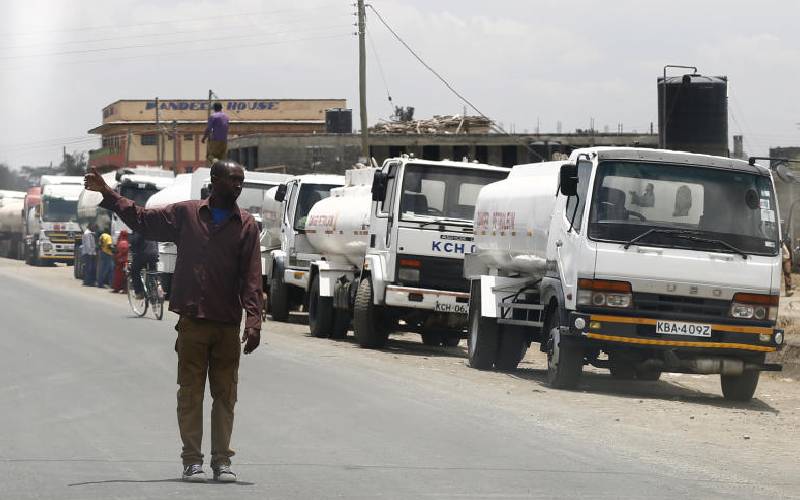×
The Standard e-Paper
Home To Bold Columnists

Fuel tankers parked outside Kenya Pipeline Company depot in Nakuru. [Kipsang Joseph, Standard]
Fuel prices shot up by Sh5.25 a litre in the pricing review that took effect at midnight. This marks a tidy profit considering the daily consumption is about 10 million litres.